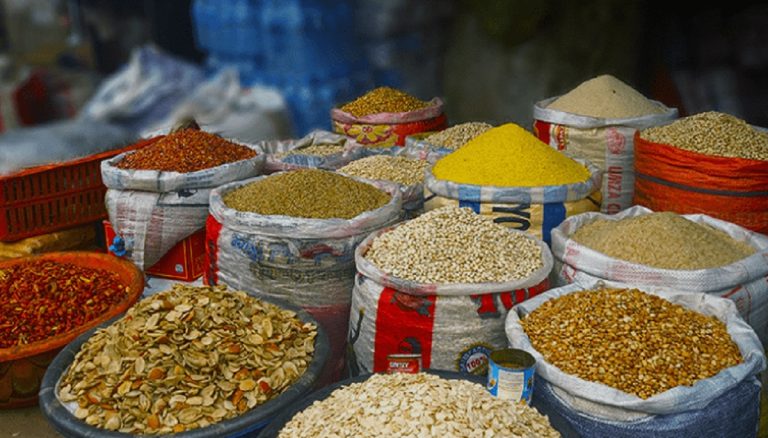Residents in Kaduna, Kano, and Katsina states have expressed deep concerns over the soaring prices of foodstuffs, as highlighted by a recent survey.
The significant price hikes in essential commodities such as rice, bread, sugar, garri, beef, and eggs have notably strained household budgets, making it increasingly difficult for many families to afford three meals a day.
Price increases in Kaduna:
Rice: The price of Mama Gold rice has surged to approximately N75,500 per bag, while 50kg bags of Stallion and Optimum brands now cost between N77,000 and N80,000.
Bread: A loaf of bread is priced between N1,000 and N2,500, depending on the brand and quality.
Garri: The price of a measure (mudu) of white garri has increased from N400 to N1,200, and yellow garri from N600 to between N1,300 and N1,500.
ALSO READ NBS: Food prices increase in April 2024
Eggs: A crate now sells for between N4,000 and N4,500, up from N3,000.
Beef: The price per kilogram has risen from N3,000 to N5,000.
Farmers attribute the high costs to the removal of the fuel subsidy, which has increased transportation expenses, as well as inflation, which has driven up the prices of farm inputs like fertilizers and herbicides. Ishaya Chingali, a large-scale farmer, emphasized that addressing transportation costs could mitigate about 50% of the food price issue. Kure Kade, President of the Organic Ginger Farmers Association, called for government subsidies on farm inputs to alleviate the situation.
Government interventions in Kaduna:
The Kaduna State Government has responded by distributing farm inputs, implements, and agro-processing equipment to 40,000 smallholder farmers under the ‘A Koma Gona’ (Back to Farm) initiative. This program aims to boost food production across the state’s 23 local government areas. Commissioner Murtala Dabo highlighted the state’s agricultural potential and the importance of supporting smallholder farmers and agro-processors to ensure food security.
Economic and security challenges:
Farmers and agricultural experts also pointed to broader economic challenges and insecurity as factors exacerbating the food crisis. Nuhu Aminu, Chairman of the All Farmers Association of Nigeria (AFAN) Kaduna State chapter, emphasized that banditry and kidnapping are major impediments to food security. He urged for better security measures to enable farmers to work without fear.
In Kano, agriculture experts have advised the federal government to engage with legitimate farm-produce marketers and large-scale farmers to control food prices. They suggested that the government purchase foodstuffs in bulk directly from farmers and resell them at affordable rates to the public. This approach could help curb food hoarding and ensure a stable supply.
Impact on residents:
In Katsina, residents reported that the economic hardships and soaring food prices have pushed many into poverty and hunger. Civil servants and traders expressed difficulties in sustaining their families and businesses due to the rising costs.
The governments in these states are taking various measures to address the crisis, from providing subsidies and distributing inputs to enhancing agricultural mechanization and improving security for farmers. However, residents and experts agree that more comprehensive and sustained efforts are needed to stabilize food prices and ensure food security.


